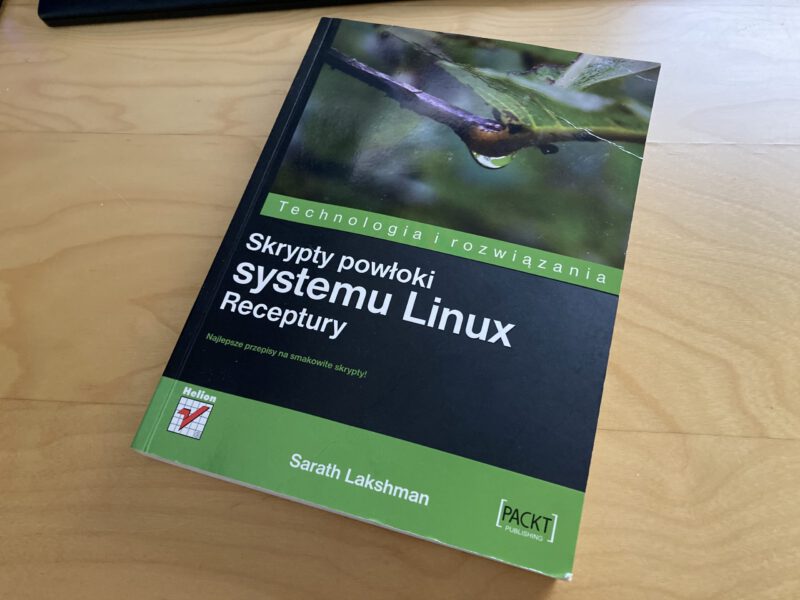23 April, 2023
Linux Shell Scripting Cookbook
My book Pile of Shame became my tormentor. Recently I’m catching up with it just to get some closure. Most recent book I’ve read was waiting for over 10 years. Shame! I always had something better to read…
Linux Shell Scripting Cookbook by Sarath Lakshman is exactly what the title says. The book presents quite a few useful recipes to common problems. On top of that we’ll find some bash scripting basics and introduction to other common concepts.
I didn’t find much new stuff in it, but that was to be expected. Sadly, the way the book was written is pretty frustrating. One third of it are useless, repetitive descriptions and introductions. When you get over it, it might be a pretty decent read.
Here are some highlights of commands I’m not using often enough, for my own reference:
- xargs
- diff/patch
- tree
- grep (xD)
- got to start using curl instead of wget
- netstat
- time
- watch
